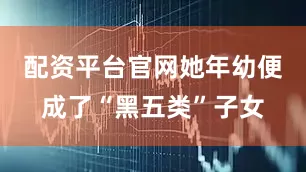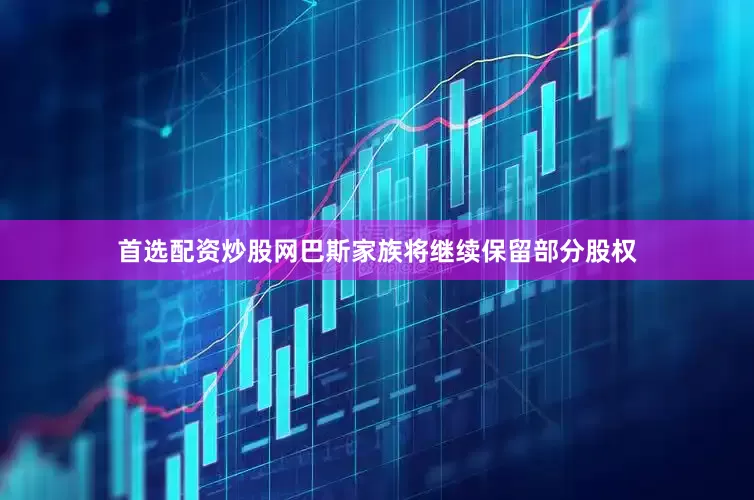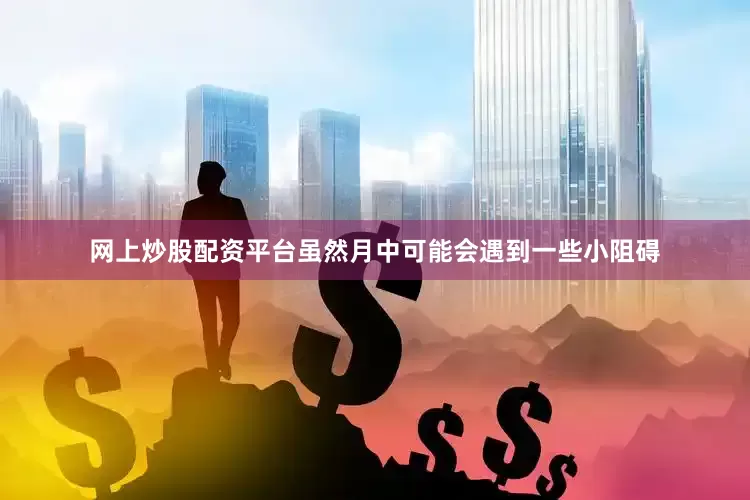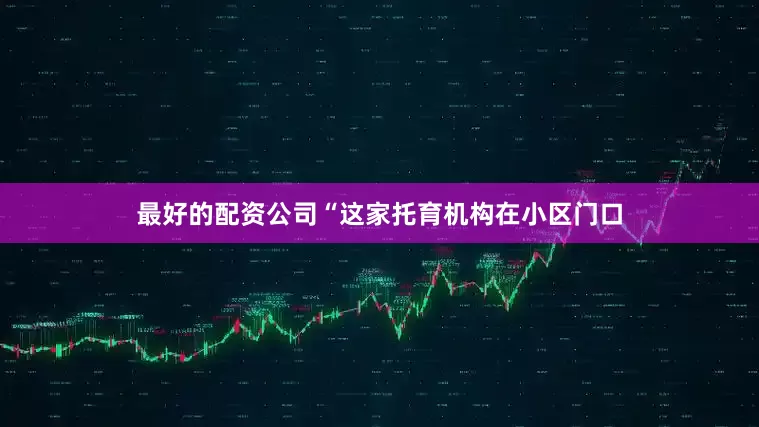
“世界以痛吻我,我却报之以歌。”这是印度诗人泰戈尔的一句诗,也是华裔女文豪、著名女记者作家曾慧燕用一生在诠释的箴言。她用文字回应世界的冷漠,用笔尖抵抗命运的风暴,用善良和尊严雕塑一个女性知识分子的精神高地。她不是天生的宠儿,却是在痛苦中孕育出来的光之使者。
她曾是那个在风雨中逆行的人,明知前路无光,却仍抱着“把自己活成一束光”的梦想,执着前行。在她身上,我们看到一个真正的灵魂强者--她没有选择怨天尤人,而是选择了微笑、写作与拥抱世界。
她从未将自己的苦难变成怨念,而是将它化为理解他人苦难的能力;视痛苦为财富:她也从未炫耀自己的成功,而是更愿意分享那些跌倒时的尘土与泪痕。正是这种真实,让她的作品触动人心,也让她的形象立体、可敬。
她为时代立传,也为灵魂守望。曾慧燕的作品,是一代人的心灵档案。她以女性独有的敏锐与温柔,书写社会的转型、人的挣扎、家庭的裂缝、情感的失衡。她不仅是一个记者作家,更是一个心灵观察者,是一个时代的记录者。
展开剩余97%她关心的不是自己的创伤,而是千千万万普通人如何在风暴中寻找出路。她用笔触触碰社会痛点,用故事照见灵魂裂痕。在她笔下,父亲的沉默、母亲的焦虑、孩子的孤独、女性的挣扎,都不再是抽象的概念,而是有温度、有重量的生命。
在这个浮躁的时代,她坚守写作的初心,不为流量所动,不为虚荣所诱,而是用心一字一句地书写生命的意义。这种“逆流而上”的写作态度,恰恰证明了她内心的坚定与高贵。
她是一位真正意义上的“文豪”,不是因为她出版了多少作品,而是因为她的文字,承载了灵魂的重量,也散发着思想的光芒。
这本书,名为《活成一束光》,不仅是一个标题,更是一种生命的隐喻,是对一个灵魂自我重塑的真实写照,是对一位华裔女作家坎坷人生的深情回望与精神致敬。
她生于书香门第,却在政治风暴中被连根拔起。她自幼遭逢家变,年少失学,屡次被拒绝在学校和社会的大门之外,却始终没有向命运投降。正如她所说:“我有一百个理由变坏,却一直努力做个好人。”她渴望成为泰戈尔笔下那道光,不仅照亮自己前行的路,也为了照耀别人。
一、痛苦是一座火山,也是一把火炬
曾慧燕出生于广东吴川,一户祖上悬壶济世、德泽乡里的中医世家,父亲曾是一位温文儒雅的中学校长,祖父是用毛笔写药方、怀抱医术良知的仁医。在一个注重人伦与文化传承的家庭中,她原本应拥有一个平稳而温暖的成长路径。但历史的车轮并不怜惜个体命运,政治风暴骤起,她年幼便成了“黑五类”子女,父亲被打成“右派”流放柴达木盆地,母亲远走香港,家庭破碎、年少失学、社会歧视、身份压迫成了她成长的底色。
她没有母亲温暖的怀抱,没有父亲有力的庇护,祖母的疼爱是她最温柔的港湾。她在极度艰难的环境中,咬牙前行,为了爭取“读书”的权利,过江渡河跋涉乡间小路,从制度夹缝中苦苦争取。她视痛苦为财富,将一次次的被拒、一次次的流泪、一次次的挣扎,写进生命的厚重章节。她说:“我不向命运屈服,我要用知识扼住命运的咽喉。”也正是这种“逆流而上”的力量,在最黑暗的少年岁月,为她积蓄了成为新闻记者的敏锐、坚毅与情怀。她的笔,是她的武器,也是她的光源。
二、命运不公的少女:从疼痛中觉醒
如果人生真是一部小说,那么曾慧燕的童年便是开篇即苦。她出生于风雨飘摇的年代,个人命运与时代风云变幻交织在一起。但在命运的低谷中,曾慧燕从不自怨自艾。她知道,要想摆脱命运安排的角色,就必须用自己的方式重写剧本。从广东到香港,从工厂女工到报社採访部,她靠的是一个不服输的信念,一支诚实勤奋的笔,以及那股“不撞南墙不回头”的冲劲。
她不是科班出身,也没有人事背景,却凭借敏锐的新闻嗅觉、饱满的人文情怀与诚实扎实的写作风格,很快在香港新闻界崭露头角。她先后在《中报》《香港日报》《新报》《快报》《天天日报》五家主流报社任职。
1983年,她荣获“香港最佳记者”“最佳特写作者”“最佳一般性新闻写作”三项大奖,破历史纪录;1984年当选“香港十大杰出青年",成为首位获此殊荣的大陆新移民;1985年更获选“世界十大杰出青年”,是香港新闻界首位也是唯一一位获得此殊荣者。
她以记者的身份,写下时代的波澜壮阔;以女性的细腻,描绘社会的温凉百态;以文人的气节,书写良知与尊严。在快节奏、功利性极强的新闻圈,她始终坚守底线,从不收受红包,不为名利低头。她说:“新闻不仅是职业,更是一种使命。”
三、从高峰走向寂静,为了圆一个读书梦
正当事业如日中天,曾慧燕却毅然放弃香港的一切,远赴美国,追寻她少年时代未竟的“读书梦”。她坦言,那是人生的三重动因:一是为学好英语,为新闻事业打开更广的疆界;二是为实现被剥夺多年的求学愿望;三是情感创伤后的自我疗愈。
这一次转身,不是逃避,而是自我重塑的起点。在美国,她继续以特派记者的身份活跃于北美媒体界,1989年起担任《联合报》美加新闻中心记者,后转职《世界日报》,直到離职为止,28年如一日,坚持高产、高质写作,发表报道累计近三千万字。她是北美华文记者中采访名流政要最多者之一,被称为“两岸三地的文侠”,被公认为全球华人女性媒体人中的佼佼者。
她用笔记下两岸三地最重要的历史节点:桂林空难、邓小平首次接见港澳记者、英国首相撒切尔夫人与英女王访华、中英两国会谈、联合声明签署、香港回归……这些历史事件的台前幕后,她不仅参与,更深度记录,成为重要的历史文献构建者。
她是一个历史的目击者,更是时代的书写者。
四、在香港和纽约,她活成了“燕姐”,亦是文化圈的大姐大
早在香港新闻界,包括政商学界,不管男女老少,大家都尊称會慧燕为“燕姐”,奠定她的“江湖地位”。移居美国后,曾慧燕没有停下脚步。她扎根在纽约,活跃于华人社区各类文化沙龙与公共事务,成为纽约华语文化圈中极具影响力的人物。她不是沉溺回忆的名人,也不是退而休闲的“前记者”,而是始终以一种“燃烧”的状态,投身于时代书写。
她热心公益,乐于扶持后辈,凡是需要她发声的人事物,她总是仗义执言。她开设微信公众号“慧言燕语”和“曾慧燕”,整理四十年间的旧文,分门别类,系统整理,不仅为自己建立起一份文献自传,也为后人留下真实可考的历史样本。
她常说:“我要为历史作证,为时代留纪录。”这不是炫耀,也不是怀旧,而是一个新闻工作者的职业担当。
她用笔讲述一个又一个人物故事,展现社会百态、阶层跃动、人性光辉,她既写邓小平、撒切尔夫人、英女王、诺贝尔得主等名人政要、富商巨贾,也写国民党老兵、抗日名将、中餐馆、华人超市、义工等各行各业人士。她总能从宏大叙事中找到个体命运的闪光点,也能在微小故事中看到时代的裂缝。
正是这种“侠骨柔情,宠辱不惊”的品格,使她成为“燕姐”--不只是昵称,更是一种尊称。
五、她让自己活成一束光也成了传奇
真正的传奇不是天降荣耀,而是血汗铸成。她不是没有摔倒过,不是没有绝望过,但她每一次跌倒,都不曾放弃尊严;每一次绝望,最终都化作一束光,培养她悲天悯人的情怀。
她说:“我不完美,也不伟大。我只是一个万难不屈、永不认输、挥笔不辍的女人。”如今,当我们翻阅她的报道、阅读她的访谈、回望她走过的路,我们会发现:她的身影,在时代的大幕前,始终挺立;她的声音,在风暴中,始终清晰;她的笔,在于无声处,始终犀利。而她的灵魂,在痛苦中涅槃,在书写中闪光。
她不是历史的旁观者,她是历史的参与者;她不是命运的逃兵,她是命运的战士。她的文字是一份生命档案,是一盏文明火炬。她用笔告诉我们:即使你出身卑微、命途多舛,也能活得有光有热;即使世界以痛吻你,你也可以报之以歌。
六、【活成一束光】献给所有在黑暗中摸索的人
在文字中疗愈,把“狗血人生”写成史诗。曾慧燕从不避讳用“狗血"来形容自己的人生轨迹。但她也深知:狗血,是一种荒诞的表象,背后藏着一颗如何都不肯沉沦的心。
她用一支笔,写尽了自己也写透了众生。她的文章,没有华丽辞藻的堆砌,甚至时常赤裸裸、刀刀见骨,却能直抵人心最柔软的地方。那是因为,她写的是自己真实的泣血经历,她在创作中“剖心”,在字里行间“流泪”,在叙述中“自剖”。
每一篇“伤痕文章”都是她与创伤对峙的战书,是她与过往和解的尝试。写作对她而言,从来不是炫耀技巧的舞台,而是生命修复的手术台。她在纸上哭泣、呼号,也在纸上站立、成长。最终,她不只是写作者,更是自我疗愈的见证者、苦难记忆的编年史人。
“活成一束光”,并不是一句励志口号,而是一种艰难的人生选择。
在苦难与命运面前,大多数人会选择沉默、放弃,甚至自暴自毁。而曾慧燕,选择用光照亮自己,也照亮他人。她不是“女强人”的标签,也不是“逆袭成功”的传奇,她只是一个在风中屹立不倒的“人”--一个真实、复杂、疼痛却依然慈悲的“人”。
她的故事,远不止于个人私史,而是对这个世界无数挣扎灵魂的慰藉与鼓励。她用自身经历告诉我们:即使生如草芥,也能在风雨中昂首挺立;即使曾被世界遗弃,也能活成别人生命中的光。
她不是被命运宠爱的孩子,而是与命运搏斗过的勇士。而这,正是她最值得铭记的地方。
翻开这本书,不是为了猎奇一个女作家的坎坷人生,而是为了在她的生命轨迹中,照见我们自己的影子。她的伤痛或许我们也有,她的挣扎或许我们也经历过,她的选择或许我们也正在思考--于是她的故事,不再只是她的故事,而是我们共同的回声。
愿你读这本书时,不只是唏嘘她的经历,更能感受到文字深处传递的光:那是一束微弱但坚定的光,来自一个灵魂不肯妥协的女人,来自一颗仍愿相信善良与爱的心,来自一个在黑暗中守望黎明的作家--曾慧燕。
欢乐,是她给予世界的姿态;沉默,是她对自己的交代。
她活成了一束光,也愿成为你生命中的一束光。
此书[活成一束光]献给所有在黑暗中摸索的人。
曾慧燕1985年获“世界十大杰出青年”殊荣,手捧沉甸甸的奖杯。
曾慧燕1985年11月當選“世界十大傑出青年”,到东道主国哥倫比亞領獎,獲該國首都波哥大市长接見。
1984年5月25日,鄧小平在北京人民大会堂接见香港记者,与曾慧燕握手。
从记者到名媛,慧燕为历史作见证。
中英兩国政府談判香港前途問題期間,全国政協主席邓穎超前排左起11)等党和国家领导人,接见曾慧燕(前排左起12)等香港記者,並特意安排她站在邓穎超身边。
曾慧燕1983年囊括香港报业公会主办的“香港最佳记者”等三项大奖,打破历届得奖纪录。曾慧燕的《在北京的日日夜夜一中英谈判我见我闻》,是唯一一本关于中英兩國政府談判香港九七回归中国的历史紀錄。
曾慧燕获颁海外华文著述獎新闻写作评论佳作奖,华文作家协会代表颁奖。2023年世界华人美术金笔奖“助力国际艺术交流贡献奖”、获美国时代华人杰出风云人物“文化传媒功勋奖”,以及海外文轩文学大会“新闻文学奖”等。2025年3月与艺术家艾伦赵琼出席第69届联合国妇女大会合影。
2025年,获联合國第69届妇女大會平行论坛「国际华文女傑-杰出女性終身成就奖」。一起获奖的国际华文女傑是顾月华、王瑜、曾慧燕、和周励。
She Lived as a Beam of Light
— Dedicated to the Brave Souls Who Rose from Pain
“The world kissed me with its pain, and I responded with my song.” This line by the Indian poet Rabindranath Tagore is also the lifelong creed embodied by Chinese- merican writer and journalist WaiYin Tsang. Through her words, she responded to the world’s indifference; through her pen, she resisted the tempests of fate; with kindness and dignity, she sculpted the spiritual summit of an intellectual woman. She was not born with privilege, but emerged from suffering as a messenger of light.
She was the one who walked against the wind and rain, knowing the road ahead was dark, yet still holding onto the dream of “becoming a beam of light” and forging onward. In her, we see the strength of a true soul—she did not choose to complain or blame others, but instead chose to smile, to write, and to embrace the world. She never turned her suffering into bitterness, but transformed it into the capacity to understand others’ pain—viewing suffering as wealth. Nor did she flaunt her success; she was more willing to share the dust and tears from the times she fell. It is this authenticity that makes her works deeply touching and her image honorable and vivid.
She wrote for her era and watched over souls. WaiYin Tsang’s works are soul archives for a generation. With a woman’s unique sensitivity and gentleness, she wrote about social transformation, human struggle, family fractures, and emotional imbalance. She was not only a journalist and writer, but a keen observer of the human spirit, a chronicler of her time.
She cared not about her own wounds, but about how millions of ordinary people searched for hope amid the storm. She used her writing to touch societal pain points and shed light on the cracks in the human soul. In her narratives, a father’s silence, a mother’s anxiety, a child’s loneliness, a woman’s struggle—these were not abstract notions but living, breathing realities with warmth and weight. In this restless era, she remained true to her writing’s original purpose. She was unmoved by trends or vanity, crafting each word with heart and conviction. This “upstream” writing attitude proved her inner resolve and nobility.
She was a true “literary giant”—not because of how many books she published, but because her words bore the weight of the soul and radiated the light of thought. This book, Living as a Beam of Light, is not merely a title—it is a metaphor for life, a real portrait of spiritual rebirth, a heartfelt tribute to the turbulent journey of a Chinese woman writer.
I. Pain as a Volcano, or a Torch
WaiYin Tsang was born in Wuchuan, Guangdong, into a family of traditional Chinese medicine, with generations of healers known for their virtue and skill. Her father was a refined and gentle school principal; her grandfather a benevolent physician who wrote prescriptions with a calligraphy brush. In such a family rooted in culture and ethics, she should have had a peaceful childhood. But history showed no mercy political storms uprooted her life. Branded a “black category” child, her father was exiled to the desolate Qaidam Basin, her mother fled to Hong Kong, and her family was torn apart.
She had no mother’s embrace, no father’s protection. Her grandmother’s love was her only harbor. In such hardship, she gritted her teeth and pressed forward—crossing rivers and country paths to fight for the right to study. She saw pain as treasure and wrote each tear, each rejection, into the chapters of her life. “I will not bow to fate,” she said, “I will seize it by the throat with knowledge.” This defiant strength became her foundation as a journalist: sharp, compassionate, unyielding. Her pen was both her weapon and her light.
II. A Girl Unfavored by Fate: Awakening from Pain
If life were a novel, WaiYin Tsang’s childhood began with agony. Born in a turbulent time, her fate was intertwined with the upheavals of an entire era. But in the face of misfortune, she never self-pitied. She knew: to escape the role fate assigned her, she had to rewrite the script herself. From Guangdong to Hong Kong, from factory worker to newspaper reporter, she relied on a will that refused to surrender, a diligent pen, and an indomitable spirit.
Though not professionally trained, with no political backing, she rose in Hong Kong’s media scene through sharp instincts, humanistic warmth, and an honest, grounded writing style. She worked for five major newspapers and won triple honors in 1983: Best Journalist, Best Feature Writer, and Best General News. In 1984, she became one of Ten Outstanding Young Persons in Hong Kong—the first mainland immigrant to do so— and in 1985, she was named one of the Ten Outstanding Young Persons in Hong Kong , the only Hong Kong journalist ever honored.
As a journalist, she chronicled the times; as a woman, she captured society’s warmth and coolness; as a writer, she upheld dignity and conscience. In a fastpaced, profit-driven industry, she never compromised: “Journalism is not just a profession—it is a calling.”
III. From the Heights to Silence: Chasing the Dream of Study
At her career peak, WaiYin Tsang gave up everything in Hong Kong and moved to the U.S., pursuing the education she was once denied. She named three reasons: to master English, to fulfill a long-deprived academic dream, and to heal from emotional wounds.
This was not an escape, but a rebirth. In the U.S., she continued as a foreign correspondent for North American media, working for United Daily News and World Journal, maintaining a prolific 28-year career with nearly 30 million words published. She became one of the most prominent Chinese journalists in North America.
She reported on historic events like the Guilin plane crash, Deng Xiaoping’s first meeting with Hong Kong media, Thatcher and Queen Elizabeth’s visits to China, Sino-British negotiations, and the Hong Kong handover. She wasn’t just an observer —she was a historian of her time.
IV. In Hong Kong and New York, She Became “Sister Yan”
In Hong Kong, everyone from politics to academia respectfully called her “Sister Yan.” After immigrating to the U.S., she took root in New York, remaining active in cultural circles and public affairs. She wasn’t a nostalgic retiree or a resting legend—she continued to “burn” herself for the cause.
She was passionate about public service and nurturing younger generations. Her WeChat public accounts “Yan’s Voice” and “WaiYin Tsang” archived 40 years of writings into a living memoir and a reference for posterity. “I want to bear witness to history,” she said—not out of vanity, but duty.
She chronicled both the famous and the ordinary—statesmen and Nobel laureates, as well as war veterans, restaurant workers, supermarket clerks, and volunteers. Her eye caught the brilliance of individual fate amidst grand narratives. “Sister Yan” became not just a nickname—but a badge of honor.
V. She Became a Beam of Light—and a Legend
True legends are not born of glory, but of blood and sweat. She stumbled and despaired, yet each fall preserved her dignity; each pain became her compassion. She said, “I am not perfect, nor great. I’m just a woman who refuses to yield and keeps writing.” Her figure stood upright before the backdrop of history. Her voice rang clear in the storm. Her pen cut through silence with power. Her soul was reborn in pain and glowed in words.
She was not a spectator of history, but its participant. Not a victim of fate, but its warrior. Her writing was a life archive, a torch of civilization. Her story shows us: even if born low, we can live with light and heat; even if kissed by pain, we can answer with a song.
VI. Living as a Beam of Light — A Tribute to All Who Struggle in the Dark
In her words, she healed—turning a “bloody mess of a life” into an epic. She called her journey “dog blood,” a Chinese term for dramatic chaos. But behind that absurdity was a soul that refused to sink.
She wrote her life and captured humanity. Her prose had no artificial flourish—often raw and piercing—yet always sincere. She bled and wept on the page. Every “wounded story” was a letter to her trauma, a reconciliation with her past. For her, writing was not a performance but a surgical table for self-restoration. She cried on paper, stood up on paper, and grew. She was not just an author—but a witness to healing, a chronicler of pain.
“Living as a beam of light” is not a slogan. It is a hard-won life choice.
When most would fall silent before fate, she chose to shine—not to claim victory, but to warm others. She is not a symbol of strength or a miracle of success. She is simply a person—a real, complex, wounded, yet kind person.
Her story is not just her own—it is an echo for countless souls still groping through darkness. She tells us: even when abandoned by the world, we can still become the light in someone else’s life.
She was not a child favored by fate, but a warrior who fought it. And that, above all, is what makes her unforgettable.
Open this book—not for spectacle—but to find reflections of your own shadow in her journey. Perhaps you, too, have known her pain, her struggle, her choices. Her story becomes our shared resonance.
May you, as you read Living as a Beam of Light, not only sigh at her trials but feel the light that radiates from her words: a faint but unwavering beam from a woman who refused to yield, from a heart that still believes in goodness and love, from a writer keeping vigil for dawn in the dark.
Joy was her offering to the world; silence, her conversation with herself.
She lived as a beam of light—and may she be one in your life as well.
This book, “Living as a Beam of Light,” is dedicated to all those who grope through the darkness.
新闻从业经历:
1980年1月-1980年11月:香港《中报》
1980年8月-1981年5月:香港《日报》
1981年7月-1982年2月:香港《新报》
1982年4月-1985年10月:香港《快报》
1985年11月-1988年:香港《新报》
1989年8月-2002年8月:台湾《联合报》美加新闻中心(United Daily News
US-Canada News Center)
2002年9月-2017年12月:《世界日报》(World Journal)
2018年1月至今:自由撰稿人
获奖记录:
·1983年香港新闻奖三项大奖(由香港报业公会主办):
当年最佳记者
最佳特写作者
最佳一般性新闻报道
·1984年当选“香港十大杰出青年”(由香港青年商会主办)
·1985年当选“世界十大杰出青年”(由国际青年商会Jaycees International主办)
·2017年荣获“跨文化传媒贡献奖”
颁发单位:中国戏剧工作坊/American Chinese Theatre Works
·2018年荣获“卓越贡献奖”
颁发单位:美国圣约翰大学亚洲研究所华美族研究会
2021年荣获“华美族移民文学佳作奖”(The First Chinese American Immigrant Literary Award)
·2006年入选“全球百位华人公共知识分子”
·2022年获美国无国界教育组织颁发“国际导师奖”
·2023年获以下奖项:
美国时代华人杰出风云人物“文化传媒功勋奖”
世界华人美术金笔奖“助力国际艺术交流贡献奖”
海外文轩文学大会“新闻文学奖”
2024年获:
世界华人周刊首届“优秀散文奖”
日本国际元宇宙大会“国际前卫艺术交流助力奖”
2025年 于第69届联合国妇女大会平行论坛,荣获:“国际华文女杰--杰出女性终身成就奖
Journalism Experience:
• January 1980 – November 1980: Centre Daily News (Hong Kong)
• August 1980 – May 1981: Hong Kong Daily (Hong Kong)
• July 1981 – February 1982: Hong Kong Daily News (Hong Kong)
• April 1982 – October 1985: Hong Kong Express (Hong Kong)
• November 1985 – 1988: Hong Kong Daily News (Hong Kong)
• August 1989 – August 2002: United Daily News – US-Canada News Center (Taiwan)
• September 2002 – December 2017: World Journal
• January 2018 – Present: Freelance Writer
Awards:
1983 Hong Kong News Awards (organized by the Newspaper Society of Hong Kong):
Journalist of the Year
Best Feature Writer
Best General News Report
1984: Named one of the Ten Outstanding Young Persons in Hong Kong
(organized by the Hong Kong Junior Chamber of Commerce)
1985: Named one of the Ten Outstanding Young Persons of the World
(organized by Jaycees International)
2017: Winner of the Cross-Culture Media Contribution Award
Presented by American Chinese Theatre Works
2018: Recipient of the Outstanding Contribution Award
Presented by the Institute for Asian Studies-Chinese American
Studies Program, St. John's University(USA)
2021: Winner of The First Chinese American Immigrant Literary Award
2006: Selected as one of the 100 Global Chinese Public Intellectuals
2022: Recipient of the International Mentor Award
Presented by the U.S.-based Education Without Borders Organization
2023: Recipient of the following awards:
Cultural Media Achievement Award, from Chinese American Times - Outstanding Influential Figures
Contribution to International Art Exchange Award, from Global Chinese Fine Arts Golden Pen Award
Journalistic Literature Award, from Overseas Huaxuan Literary Conference
2024: Recipient of:
First Prose Excellence Award, from Global Chinese Weekly
Award for Contribution to International Avant-Garde Art Exchange, from Japan International Metaverse Conference
2025: At the 69th Session of the United Nations Commission on the Status of Women (CSW69) Parallel Forum, received the “Outstanding Lifetime Achievement Award - International Chinese Women of Distinction"
发布于:山东省靠谱的股票杠杆交易平台提示:文章来自网络,不代表本站观点。



